RVC researcher instrumental in introduction of new elephant care standards
New rigorous welfare standards developed by Professor Christine Nicol, Professor of Animal Welfare at the Royal Veterinary College, in collaboration with the animal protection charity, We Are All Mammals (WAAM), have been introduced in facilities across Southern Africa.
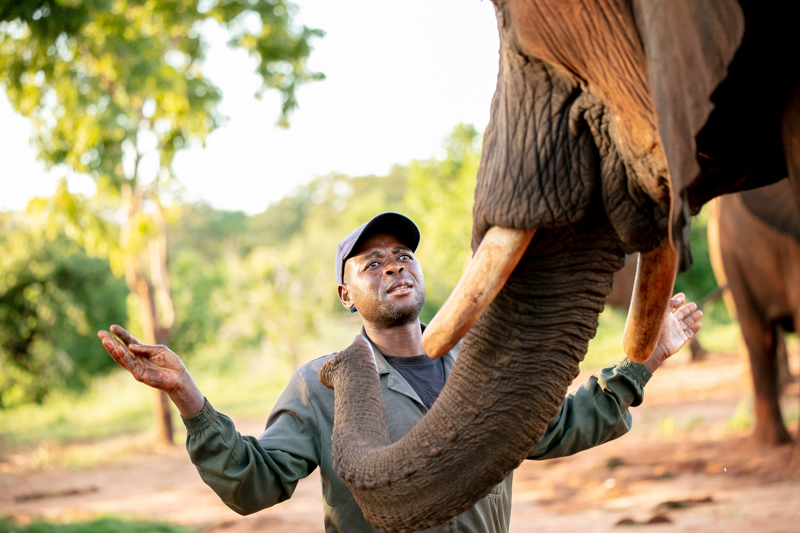
Photo: Lessane Fowler/eleCREW
The Standards for the Management and Welfare of Elephants in Human Care are the first to provide guidance on how to manage elephants under human care and will help ensure that elephants receive the highest possible standards of care.
The new guidelines go beyond simply keeping elephants in good physical health by recognising their autonomy and intelligence. In addition, these benchmarks will help facilities demonstrate to visitors and donors that the elephants they are supporting are managed to the highest possible standards.
Facilities keeping these complex mammals must ensure that the elephants are able to exercise choice over their living conditions. It is also essential that they are provided with an enriched environment and social companionship, and are able take part in co-operative activities with their human carers which has benefits for safe handling and interactions, and for the intellectual development of the elephants.
The guidelines are intended to act as a gold standard for elephant care, helping to showcase those who are meeting the criteria and empowering other facilities to make changes to be meeting best practice.
In a notable achievement, EleCrew, a Zimbabwean Trust that keeps African elephants under human care, has just become the first facility to pass a rigorous inspection process during which they demonstrated how they met these new welfare standards.
Christine Nicol, Professor of Animal Welfare at the Royal Veterinary College and co-author and editor of the Standards for the Management and Welfare of Elephants in Human Care, said:
“There is nothing more satisfying than seeing animal welfare science translate into real change on the ground. Elephants are magnificent animals and, as human pressures continue to increase and encroach on their lives, we must ensure that we acknowledge our responsibility to ensure they can lead lives of the highest quality.”
Jake Rendle-Worthington, Director of We Are All Mammals (WAAM) said:
“Working with the RVC has been of huge benefit as we have had access to expertise keeping up to date and cutting edge animal welfare concepts at the core of the standards that we have developed.”
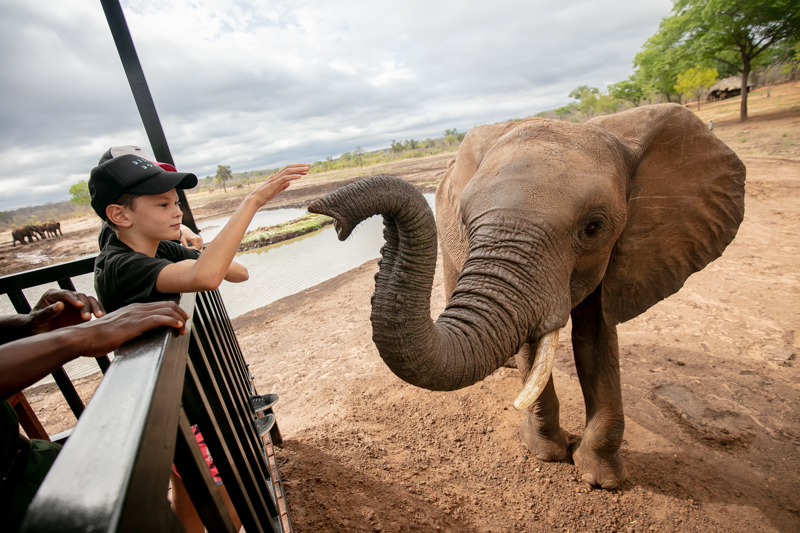 A visitor is approached by Kariba on the viewing deck.
A visitor is approached by Kariba on the viewing deck.
Photo: Lessane Fowler/eleCREW
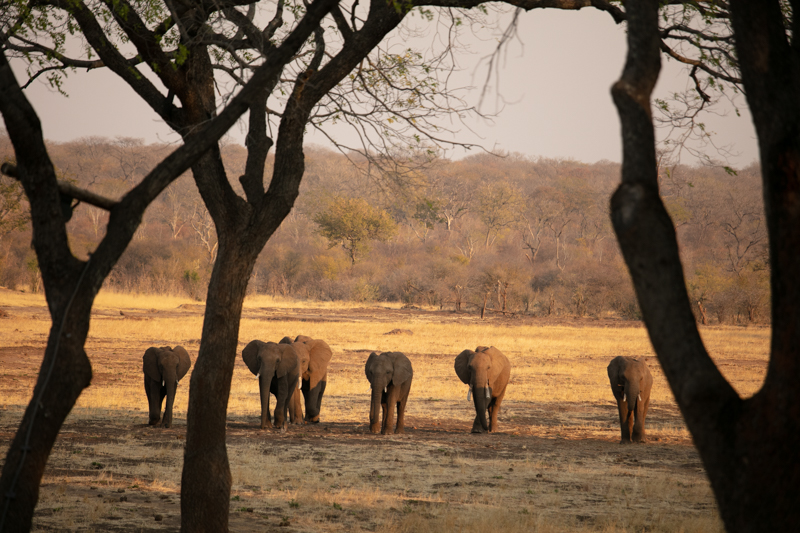 The eleCREW herd coming back to night time enclosures after a day in the bush.
The eleCREW herd coming back to night time enclosures after a day in the bush.
Photo: Lessane Fowler/eleCREW
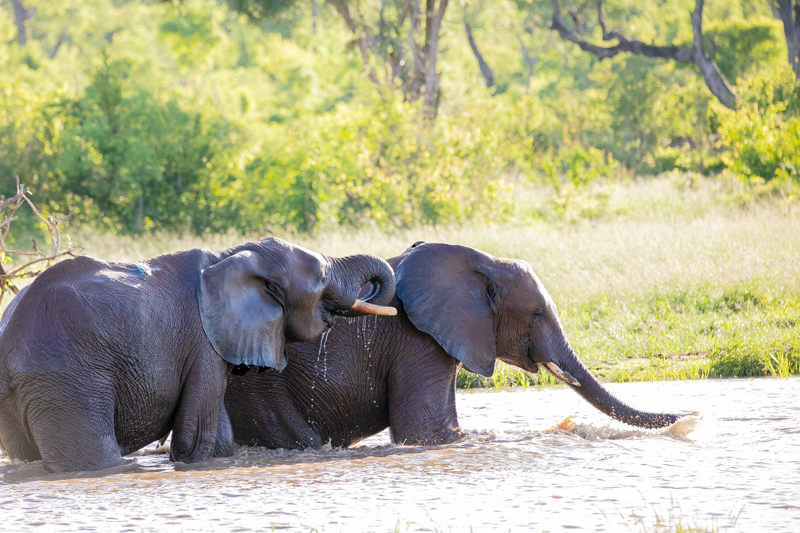 Detema and Deka in the water.
Detema and Deka in the water.
Photo: Lessane Fowler/eleCREW
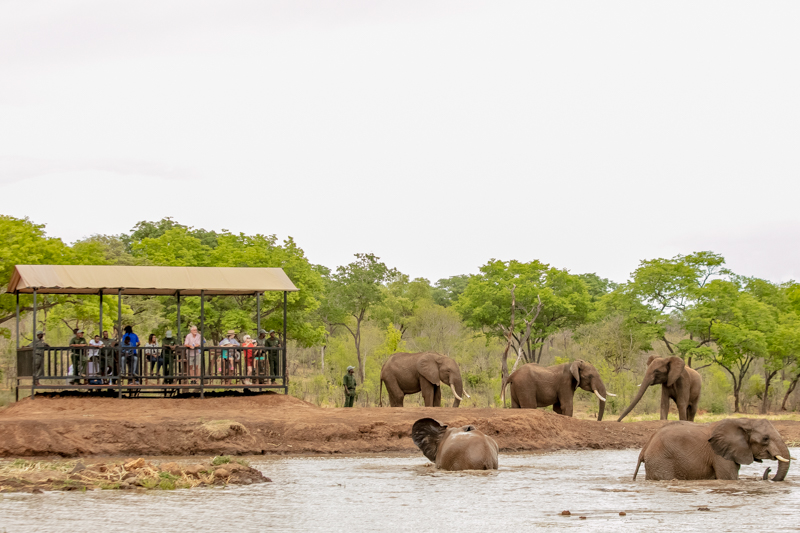 The eleCREW herd is free to roam and decide whether to interact with human visitors.
The eleCREW herd is free to roam and decide whether to interact with human visitors.
Photo: Lessane Fowler/eleCREW
Notes to Editors
Reference
The Standards for the Management and Welfare of Elephants in Human Care, were published in 2021, ISBN: 978-1-80068-007-4 and are available from WAAM.
WAAM recognises the mutual dependencies and similarities between humans and other mammalian species. In a world with ever increasing human pressures on wild habitats humans and other species need to co-exist happily. WAAM was established in 2019 and works through knowledge, education and research to ensure the conservation of mammals living in close proximity to humans.
More information about WAAM can be found here: https://www.weareallmammals.org/
eleCREW, based in Victoria Falls, is the first facility to pass the inspection showing that the welfare of its 9 elephants has met the requirements set out in the Standards.
More information about their facility and conservation work can be found here: https://www.elecrew.org/
For more information please contact:
- Jasmin De Vivo devivo@plmr.co.uk or rvc@plmr.co.uk
- Press Line: 0800 368 9520
About the RVC
- The Royal Veterinary College (RVC) is the UK's largest and longest established independent veterinary school and is a Member Institution of the University of London.
- It is one of the few veterinary schools in the world that hold accreditations from the RCVS in the UK (with reciprocal recognition from the AVBC for Australasia, the VCI for Ireland and the SAVC for South Africa), the EAEVE in the EU, and the AVMA in the USA and Canada.
- The RVC is ranked as the top veterinary school in the world in the QS World University Rankings by subject, 2022.
- The RVC offers undergraduate and postgraduate programmes in veterinary medicine, veterinary nursing and biological sciences.
- The RVC is a research led institution with 88% of its research rated as internationally excellent or world class in the Research Excellence Framework 2021.
- The RVC provides animal owners and the veterinary profession with access to expert veterinary care and advice through its teaching hospitals and first opinion practices in London and Hertfordshire.
